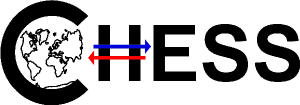When: 7-13 August 2022
Where: Meteorologic Station, Bornö, Sweden
Credit: 2 ECTS
Lecturers: Markus Jochum (Univ. Copenhagen), Julia Gottschalk (Univ. of Kiel), Malin Odalen (GEOMAR), Ulysses Ninnemann (UiB)
Application deadline: 10 June

Bornö Station, a small retreat in Sweden. For more info about Bornö station, see: https://www.bornoinstitute.o.se/ENGELSKA.HTM
Course Description:
The Bornö summer school (BOSS) is an international summer school with an evolving oceanographic topic. This years topic is ocean biogeochemical changes from the past to the future. BOSS will bring together lecturers and students from the Scandinavian-North Germany area. The summer school is planned to take place in the iconic marine research station on Bornö Island; the birthplace of marine research.
CURRICULUM. Mornings consist of lectures on ocean biogeochemistry and ecosystem changes, covering fundamentals, carbon cycle, nutrient systems, ecosystem groups and diversity, ocean deoxygenation, and climate stressors – all from a past-to-future perspective. The afternoons will be used for practical exercises The students will receive an in-depth introduction into the programming language Python and will perform enquiry-based numerical modelling exercises of ocean biogeochemical changes under a chosen future scenario with the python-based ocean model Veros. Further, the students will analyze water column properties and underlying sediment composition, using the station’s hanging bridge. The one-day research cruise will introduce the students to biogeochemical methods at sea. The students will prepare the results for discussion with the entire group at the end of the summer school in a conference to hone their scientific presentation skills.
Location Advantages: The Bornö Marine Research Station provides remarkable logistical and scientific advantages: It provides lecture rooms, a library, kitchen facilities, boats for mainland-to-island connections as well as hostel-like bedrooms and bathroom facilities for students and lectures. Additionally, it provides easy and safe access for water and seafloor sediment sampling of the adjacent Gullmar Fjord via a hanging bridge off of the steep cliff of Bornö Island. We plan to make use of this ideal setting, and proximity to Kristineberg Center which hosts R/V Alice, for research cruise of Gullmar Fjord and the open North Sea, extending the observations at Bornö Station to the open sea. It is planned that all lecturers, support staff and students share the living and educational space. The remoteness of Bornö Island offers ideal conditions to allow students to focus and to network, including during evening activities (such as barbeque or practice sailing lessons).
Outcomes: The purpose of the summer school is to provide students of diverse backgrounds an in-depth understanding of the link between ocean ecosystems and ocean chemistry, and its sensitivity to climate changes. The summer school will focus on key scientific approaches (e.g., big data literacy, hands-on state-of-the-art laboratory/instrumental analyses, sea-going experiences) and pivotal themes within the wider framework of ocean biogeochemical response to a changing world (such as ocean biodiversity dynamics, carbon and nutrient cycling, deoxygenation, etc.), including those relevant in local waters. It will be based on lectures, student group work, numerical modelling exercises, presentation training and hands-on, both ship- and shore-based ocean and sediment analyses of the adjacent Gullmar Fjord.
Apply by June 10: https://skjemaker.app.uib.no/view.php?id=12740489
